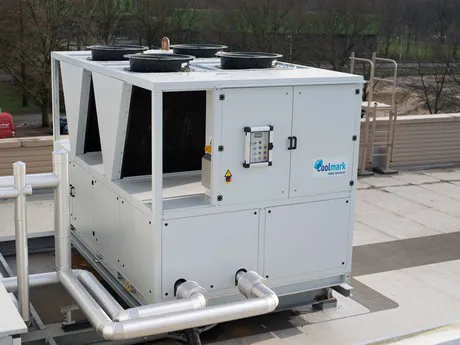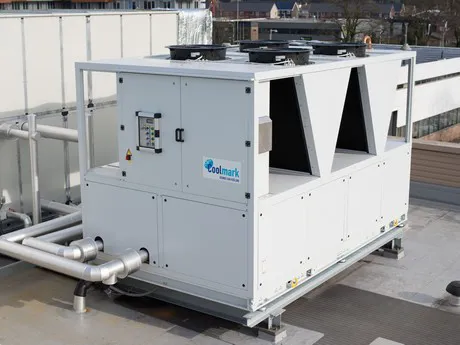Prices for synthetic coolants started rising considerably last year as a result of reduced availability. More and more companies dare to take the step of replacing their current cooling installation. This is already resulting in longer wait times.
“We’ve noticed users are now aware of the necessity of taking action for the sake of company continuity,” says Gert van Vugt of Coolmark. “The fear of leaks in particular means a lot of companies are looking into the options for replacing or revising their installations. With the current prices of coolants, leaks could just mean a bankruptcy. Prices started rising enormously last year. Coolant has become practically unaffordable, and moreover, it’s hardly available.” He says there’s now even a wait time for coolant. This means that when there’s a leak, cooling will no longer be possible in many cases. “People are definitely aware of this now, and this has led to a lot of new applications.”

Coolmark is a supplier of cooling and climate installations. The series of cold water machines work with environmentally friendly natural coolant Propane/R290. These Coolmark Propane Chillers are suitable for both cooling and climate applications, and are primarily used in the fresh produce-related sector for cooling and storing products, but it’s also used to air-condition production processes and the like. The area of use of these installations is from +20 degrees Celsius to -25 degrees Celsius. “Propane has characteristics which can be compared to the now prohibited coolant R22, and is therefore suitable for both cooling and freezing,” Gert says. “The natural coolant is flammable, so that the installation has to meet certain requirements. Legislation is such that when a cooling installation is set up outside, the coolant content has no restrictions. Due to the use of micro-channel condensers and separate cooling circuits per compressor, the coolant content could be kept very low, however. With a few kilograms, large capacities can be reached. An advantage of the so-called water-based system is that the temperature of the products can be carefully regulated, which is beneficial for the products during the storage process.”

Don’t wait too long!
The supplier started with propane installations four years ago. Gert mentions that in this period, a hand was still very much kept on the purse-strings. Now that company continuity is getting into a tight corner, a change can be noticed. “A lot of entrepreneurs experienced that R22, and R12 before that, became prohibited. Companies no longer want to dedicate themselves to a synthetic substance that might get taken off the shelves at some point. Alternatives will be available until 2030, but due to the extreme price rises, these are no longer interesting. People are looking for substances that will be around longer. Natural coolants are the future.” The situation is different for companies with no perspective. According to Gert, these should just hope that the current installations last long enough. “For example, in the past, topping the installation up cost around 5,000 euro, but we’re now talking about more than 50,000 euro for such machines, and additionally, available coolants now have waiting lists. Companies are torn, but doing nothing isn’t an option either. Don’t wait too long, because coolants are just becoming scarcer while delivery times for new installations are just getting longer.”
More information:
Coolmark
Gert van Vugt
g.vanvugt@coolmark.nl
www.coolmark.nl
